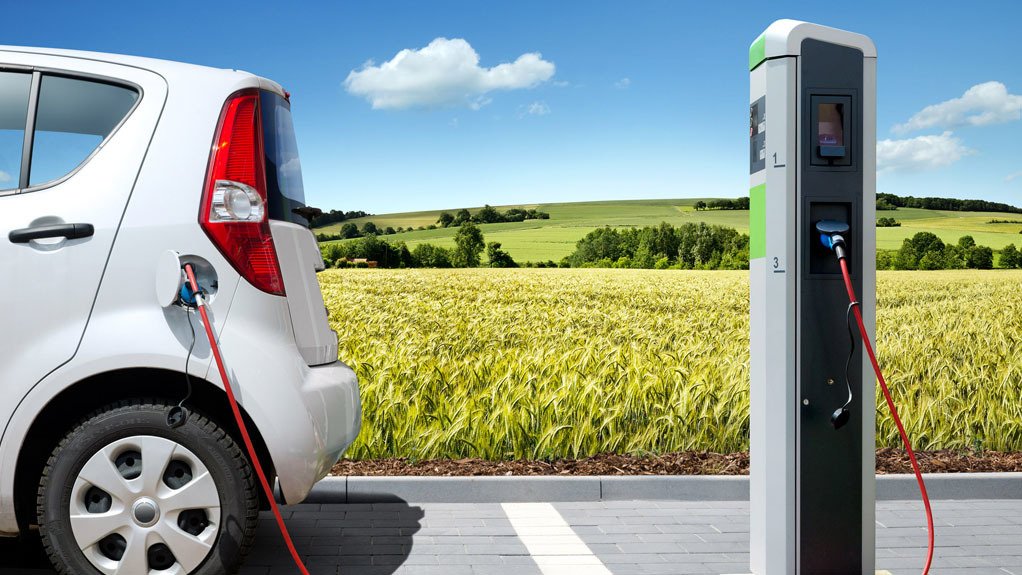SA’s fully electric fleet to reach 25 500 cars by 2030 – report
The projected passenger electric vehicle (EV) fleet in South Africa by the beginning of 2030 will be 25 456 vehicles, representing only 0.3% of the expected passenger vehicle population in South Africa.
This is according to the GreenCape 2025 Electric Vehicles Market Intelligence Report.
GreenCape is a non-profit group that aims to drive the widespread adoption of economically viable green economy solutions in Africa.
At the end of last year, the cumulative passenger EV market in South Africa reached 3 543 vehicles, with a total market value of R2.8-billion.
The GreenCape report anticipates that the introduction of mid-range-priced EV models will drive higher adoption rates between 2026 and 2030.
Based on the current EV adoption rate of 1.9% in mostly the luxury and high-end vehicle segment, it is projected that extending this rate to the mid-range-priced market could result in additional EV sales of about 21 913 vehicles by 2030, with an estimated market value of R13.9-billion.
The electric bus industry is currently the second largest South African market for EVs by value.
There were about 66 000 registered buses, bus trains and midibuses in the country at the end of 2024.
At that time, the cumulative electric bus market in South Africa stood at 156 vehicles, with a market value of R1.1-billion.
Based on bus fleet operators that have made public announcements regarding their electric bus roll-out plans, sales are expected to grow by 420 buses between 2025 and 2030.
The cumulative market size for the electric bus sector by 2030 is, thus, projected at 576 vehicles.
As for the South African commercial vehicle market, by the end of last year this market reached 172 vehicles, valued at R250-million.
The market is expected to grow to 1 000 vehicles by 2030, with a value of R1.43-billion.
Between 2025 and 2030, an additional 828 EVs are expected, valued at R1.18-billion.
This growth will be driven by increasing affordability, rising fuel costs, pressure to decarbonise, government incentives and improved infrastructure, all of which should make EVs a more attractive and feasible option for the freight and logistics sectors, states the GreenCape report.
E-bikes Speed Conundrum
There are a number of regulatory hurdles that are likely to influence electrification efforts within the mobility sector, warns the GreenCape report.
According to the new National Land Transport Amendment Bill passed at the end of last year, an electric bicycle – which is growing in popularity as a cargo bike for last-mile delivery – is considered as a vehicle if its speed is not limited to below 25 km/h.
The implication is that electric cargo bikes that are not speed governed, will no longer be considered a bicycle – which means they will no longer be allowed to use bicycle lanes.
They will also require a driving licence, as is the case with electric motorcycles.
“It remains to be seen if there will be continued growth in micro-logistics using e-cargo bicycles outside of highly localised delivery ecosystems,” says the report.
“It [should] also be noted that e-cargo bicycles are becoming popular in Soweto for first-mile delivery . . . serving the micro-logistics demand for township shops and retailers.”
The specific challenge for electric three-wheelers, in turn, is that they are only allowed on urban roads, and not on freeways.
This limits the range of last-mile delivery options, particularly in South Africa, where residential suburbs are far away from the central business district.
This means that e-commerce platforms will have to develop localised distribution centres closer to residential customers to leverage the use of electric three-wheelers for last-mile delivery.
The GreenCape report notes that there are also some regulatory barriers around the length and weight of electric extra-heavy commercial vehicles, which exceed the regulatory limits for public roads.
The local truck industry is, however, engaging with government around updating the weight and length regulations for these vehicles.
Article Enquiry
Email Article
Save Article
Feedback
To advertise email advertising@creamermedia.co.za or click here
Announcements
What's On
Subscribe to improve your user experience...
Option 1 (equivalent of R125 a month):
Receive a weekly copy of Creamer Media's Engineering News & Mining Weekly magazine
(print copy for those in South Africa and e-magazine for those outside of South Africa)
Receive daily email newsletters
Access to full search results
Access archive of magazine back copies
Access to Projects in Progress
Access to ONE Research Report of your choice in PDF format
Option 2 (equivalent of R375 a month):
All benefits from Option 1
PLUS
Access to Creamer Media's Research Channel Africa for ALL Research Reports, in PDF format, on various industrial and mining sectors
including Electricity; Water; Energy Transition; Hydrogen; Roads, Rail and Ports; Coal; Gold; Platinum; Battery Metals; etc.
Already a subscriber?
Forgotten your password?
Receive weekly copy of Creamer Media's Engineering News & Mining Weekly magazine (print copy for those in South Africa and e-magazine for those outside of South Africa)
➕
Recieve daily email newsletters
➕
Access to full search results
➕
Access archive of magazine back copies
➕
Access to Projects in Progress
➕
Access to ONE Research Report of your choice in PDF format
RESEARCH CHANNEL AFRICA
R4500 (equivalent of R375 a month)
SUBSCRIBEAll benefits from Option 1
➕
Access to Creamer Media's Research Channel Africa for ALL Research Reports on various industrial and mining sectors, in PDF format, including on:
Electricity
➕
Water
➕
Energy Transition
➕
Hydrogen
➕
Roads, Rail and Ports
➕
Coal
➕
Gold
➕
Platinum
➕
Battery Metals
➕
etc.
Receive all benefits from Option 1 or Option 2 delivered to numerous people at your company
➕
Multiple User names and Passwords for simultaneous log-ins
➕
Intranet integration access to all in your organisation





















